Environmental Sustainability Internship High School Course
I developed the Environmental Sustainability Internship Course (ESIC) as a way for high school seniors to obtain real life job experience while working with a community mentor on a project to improve environmental sustainability in our town.
Students benefit by gaining real-world experience, prepare for college-level work and learn invaluable job skills.
The community benefits because municipal and nonprofit employees are strapped for time and budget and these interns help share workload. Also, having students present at public meetings often is more effective than adults as the adults will listen better to youth. And it’s great PR for town and organizations!
Andover, MA
Highlights
-
Giving students structured time to do meaningful, practical work during the school day gives them the ability to make a difference in their own community.
Working one-on-one with adult mentors gives the students another trusted adult in their lives and gives the mentors someone to help them with their work.
-
We have a Final Poster Session at the end of each year where students share their results.
As of 2025 I have had over 100 students participate.
Former ESIC students have written to express gratitude for learning professional skills while in high school.
I know that many ESIC alumni are now working in fields related to environmental sustainability.
Here is one student’s reflections on ESIC.
-
No costs! Beyond having a teacher on board with the idea :)
-
No funding needed
-
For more information contact Melanie Cutler at melanie.cutler@andoverma.us
Steps to implement
Find a high school or college professor willing to develop a new internship course. This could include something like a capstone course, independent project, co-op program, etc.
Find volunteers to serve as mentors (ideally, one mentor per student). Ask municipal staff (Planning Department, Sustainability Department, Public Works, Conservation Commission), private industry, nonprofits, etc. I reach out to potential mentors over the summer. Each mentor writes a summary of their project.
When school begins, host a matching event. What I like to do is speed interviews. Each student can sign up for 4 mentors that they want to talk with. I invite all the mentors to come to my class on the designated time and day. I create a schedule indicating which student is talking to which mentor in each of 4 time slots. We spread out between my classroom and desks in the hallway, although we have also used Zoom. Then each mentor/student pair gets 5 minutes to talk and then all of the students switch to their next mentor interview. After the interviews I gather a list from each mentor and from each student on their top choices. Then I match the mentors to the students. This has generally always worked out where each student gets their number 1 or 2 choice and each mentor does as well.
Ask mentors to meet with their intern once a week following all of the appropriate meeting protocols. Many mentors meet their students at the town library or may go out for pizza. Once they get to know each other they may meet via Zoom or a phone call.
Let the mentors be in charge of the projects! They set the goals and schedule and also evaluate the student’s work. I created a mentor evaluation form that mentors fill out with their intern each month to talk through how well the student is doing in the three areas: leadership, project management and environmental learning.
Allow students to use their class time in a variety of ways. They may meet with mentors or work on drafting a flyer or practicing a presentation. Also let students know that there will be significant time needed to work on their project outside the classroom. For instance, a student who was learning about electric school buses visited the bus depot. Many students have attended evening town board meetings. We have had students present at our town meeting (they needed to be 18). We have had students run a sustainability fair. We have had students moderate webinars. All of these have been outside class time.
At the end of the school year, have each student create a final presentation trifold in addition to whatever their mentor may have required. Invite all of the mentors, parents and town staff to come to the final poster session and talk with all of the students.
Making it Great!
-
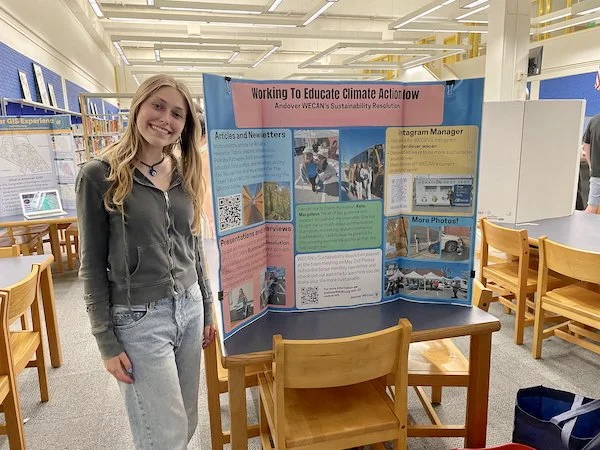
What worked well
Students learn professional skills (communication, project management, time management, presentation, etc.).
Alleviates some eco-anxiety when students are able to take action to help reduce climate change and improve environmental sustainability.
Mentors appreciate having help to get work done, especially on projects they may not have time for otherwise.
Students really appreciate having an adult to work with and student-mentor relationships often last years after graduation.
-
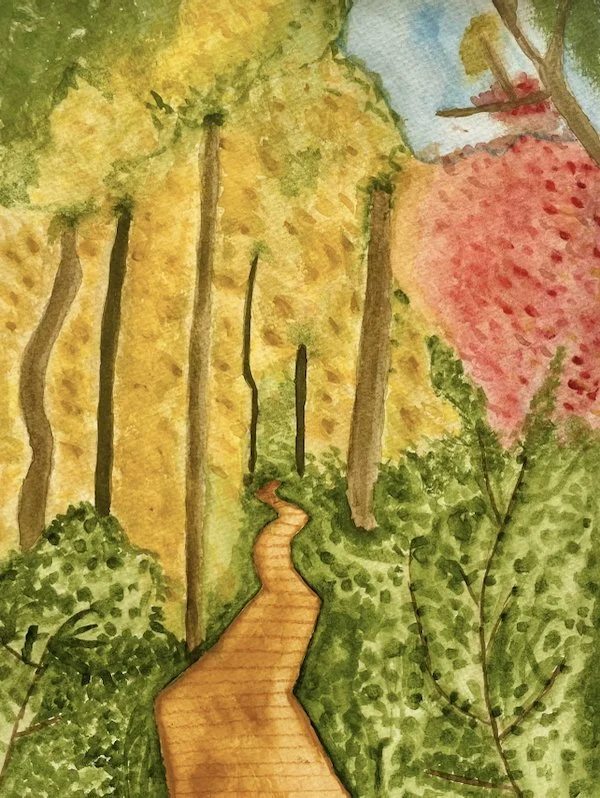
What worked less well
Finding enough volunteer mentors has been tough.
Coordinating our crazy high school schedule with the outside world is difficult.
Not all students have their own transportation.
Figuring out the best way to calculate grades for students is challenging.
-
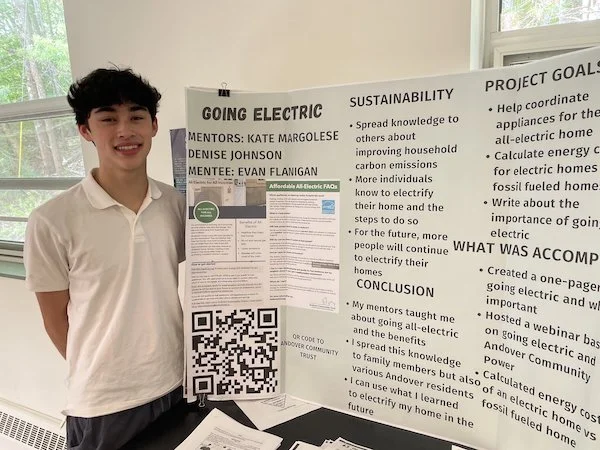
Advice
If your town is strapped for time and money, consider working with local college or high school students.
There are many different models for students to work as interns or volunteers - this class is just one way to make it happen. We have found, however, that students produce more and better work when given time during the school day and school credit for their work, rather than as a volunteer.
As the educator, I worked both with the students as well as with helping the mentors understand how to best work with a high school student intern.
Additional Resources
-

Overview of Course 2020-21 School Year
While this website is old, it has great content!
-
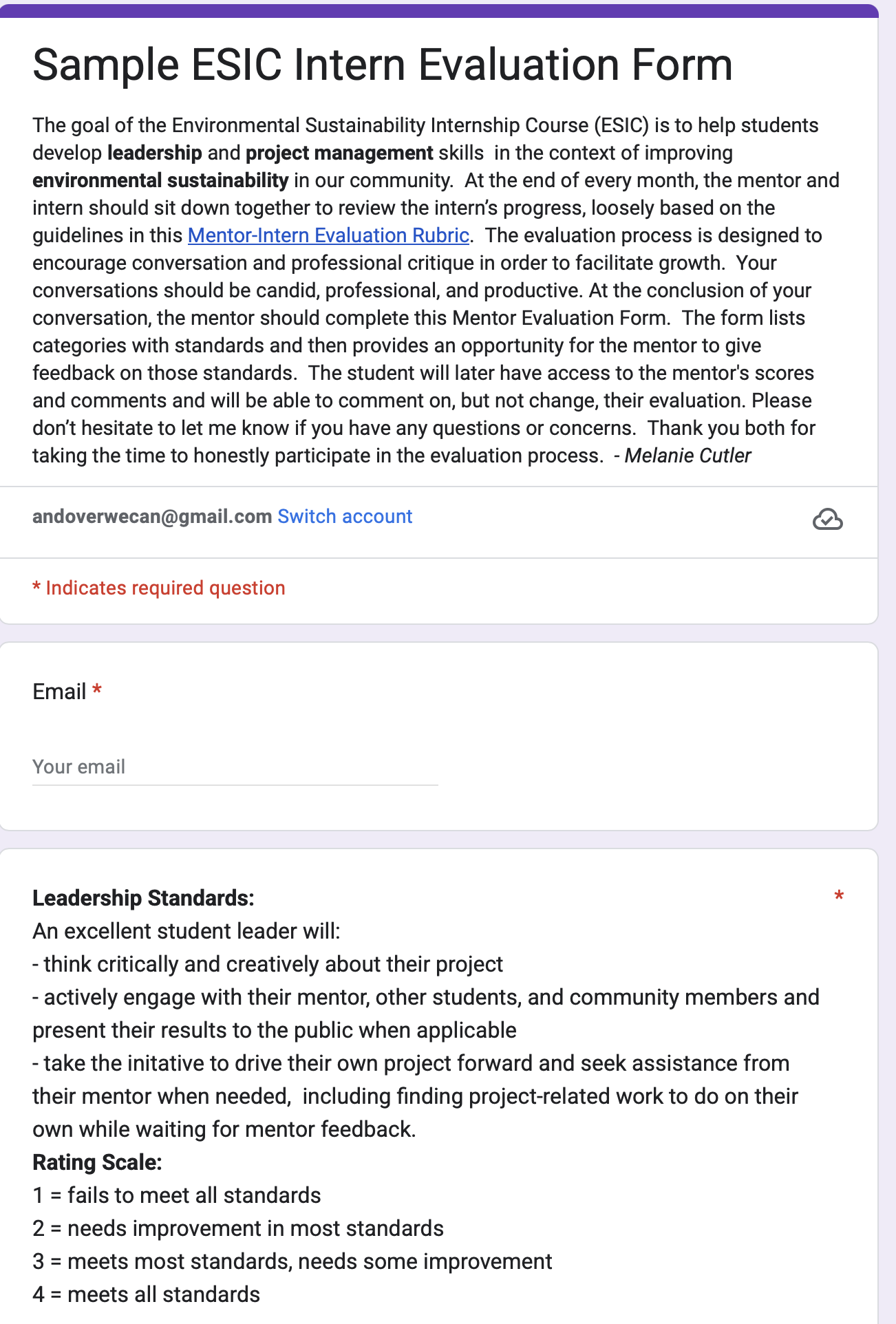
Grading Rubric
Each month the mentor sits down with the student to complete this evaluation.
-
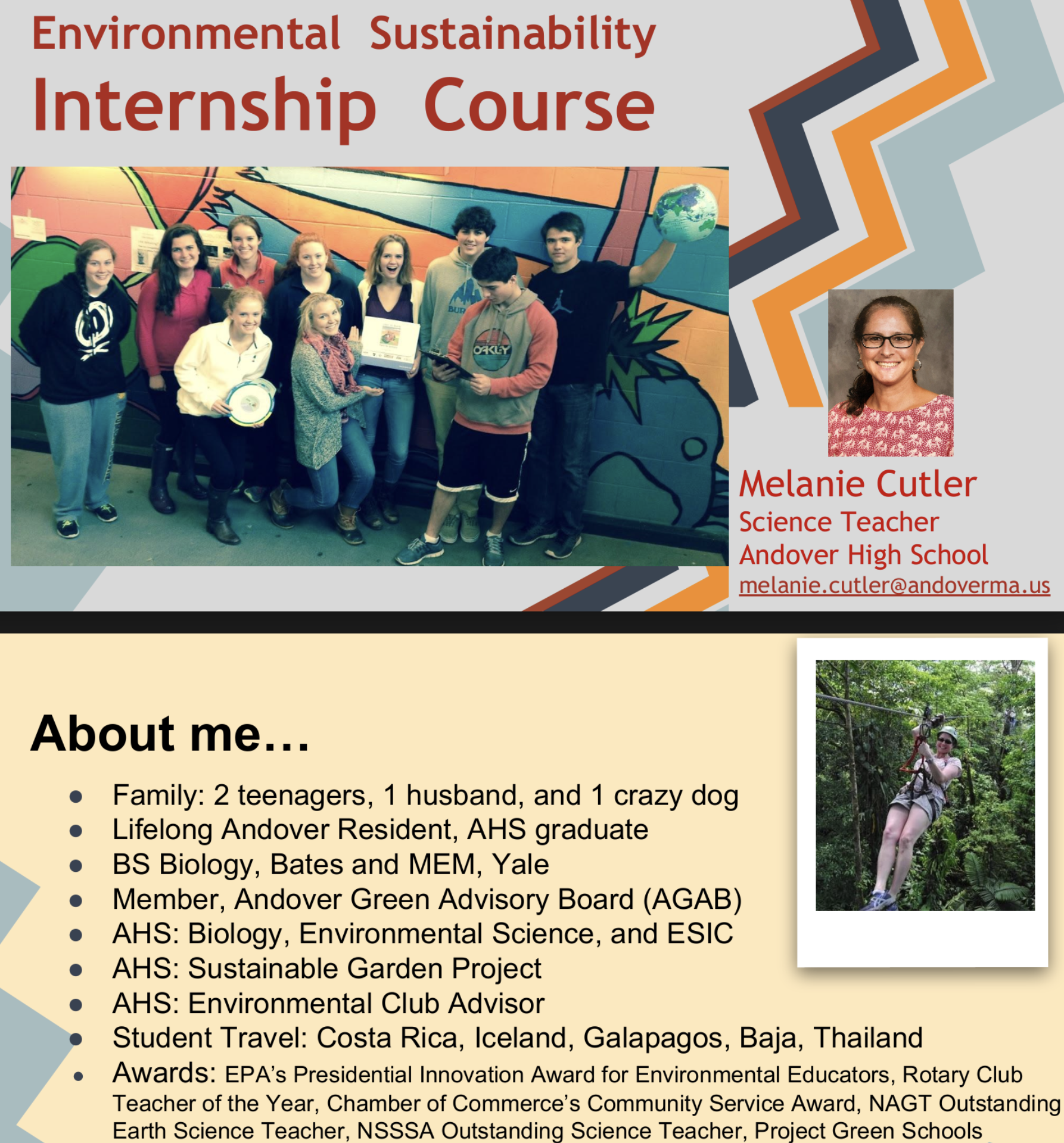
Presentation explaining ESIC
-

Mentor Solicitation Letter
This is the letter and the form people can fill out if they’d like to serve as a mentor. The link also includes a list of some past project and possible thoughts for next year.

